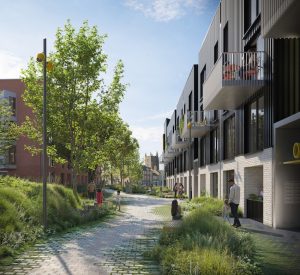Coworking market set to boom in Birmingham

The coworking office market in Birmingham will continue to boom in the next three years, with take-up expected to exceed 700,000 sq ft by 2021.
David Tonks, head of Cushman & Wakefield’s Birmingham said: “The rise of the Coworking sector reflects the changing make-up of demand and the way we are all using space. Take-up by the professions and financial institutions is stable but serviced office providers have become a major source of demand. The sector is benefiting from changes in general working practices such as agile working and the Gig economy.
“Birmingham is also the youngest city in Europe with over 100,000 Graduates within one hour. This, combined with the scale of the Automotive, Medical and Financial sectors in Birmingham, is driving innovation and sustained demand from the coworking sector in the foreseeable future.”
He added: “We will also see the average size of serviced office space in Birmingham increasing from a little over 20,000 sq ft to nearer 30,000 sq ft in the next three years as more value-added services such as cafés, gym, concierge services are put into each centre.”
While supply levels in the city remain below the UK average, the firm anticipates there is over 100,000 sq ft of coworking demand at present.
Despite wider economic and political pressures facing the region, Tonks identified the advent of 5G, HS2, the 2022 Commonwealth Games and the regeneration of Smithfield Birmingham as key opportunities for the West Midlands.
Patrick Scanlon, head of UK offices insight at Cushman & Wakefield, highlighted that despite concerns over Brexit and global trade, UK business has ‘held its nerve’.
“The impact of Brexit on UK financial services and real estate has been over-stated with fewer firms relocating staff into EU countries than had been forecast. The threat of trade wars and protectionism is likely to have a far greater impact on the real estate sector, although Brexit may cause short-term disruption.
“As Brexit and other sources of uncertainty dominate the headlines, we can get fixated on the ‘here and now’ but real estate is a long-term game.
“Over the coming years, there are many non-cyclical trends that will create opportunities for investors and occupiers who stay ahead of the curve. These trends will be in place regardless of global trade volumes, Brexit or any other external force.”
These opportunities include the next generation of tenants, the rise of coworking and alternative real estate, such as healthcare and student living, which accounted for an all-time high of 32% of regional investment volumes in 2018.
Scanlon said: “Markets that have strong fundamentals will stay popular with core investors. Meanwhile, the more challenged parts of the market will see pricing drift until they look good value for opportunistic investors looking to redevelop and repurpose assets. There is plenty of capital looking for these opportunities.”









